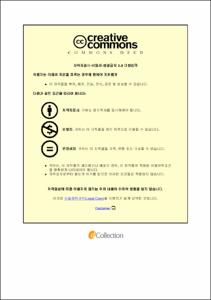위암 수술 환자의 외상 후 성장과 인지적 정서조절이 심리․사회 적응에 미치는 영향
- Alternative Title
- The Effects of Posttraumatic Growth and Cognitive Emotion Regulation on Psychosocial Adjustment of Post-operative Gastric Cancer Patients
- Abstract
- Purpose
This study was intended to identify the factors affecting the psychosocial adjustment in patients who have had gastric cancer surgery. This study was a descriptive research study to understand correlation posttraumatic growth and cognitive emotion regulation on the psychosocial adjustment of patients with gastric cancer surgery.
Method
The study employed a descriptive correlational design. Data were collected from 145 patients who had gastric cancer surgery and were treated at a cancer specialization hospital in Busan, South Korea. The researchers surveyed the participants with a structured self-report questionnaire from October 26, 2018 to March 31, 2019. Psychosocial adjustment was measured using the PAIS-SR (Psychosocial Adjustment to Illness Scale-Self Report) questionnaire developed by Derogatis and Derogatis (1983) and Posttraumatic growth was measured using the K-PTGI (Korea version of Posttraumatic Growth Inventory) questionnaire developed by Tedeschi and Calhoun (1996) and later converted and rationalized by Song, Kim, Lee & Park (2009). Cognitive emotion regulation was measured through the K-CERQ (Korean Cognitive Emotion Regulation Questionnaire) developed by Garnefski, Kraaij & Spinhven (2001) and translated by Kim (2008) and rationalized by Ahn, Lee & Joo (2013). The collected data were analyzed by frequency, percentage, mean and standard deviation, independent t-test, one-way ANOVA, Pearson's correlation coefficients, and multiple regression with SPSS/WIN 24.0 Program.
Results
1. The average Posttraumatic growth was 2.19±0.98 out of a scale of 5. Changed perception of self was 2.47±1.20, Relating to others was 2.21±1.06, New possibilities was 2.13±1.02 and Spiritual change was 1.43±1.43. The average score of Cognitive emotion regulation was 2.88±0.56 out of a scale 5. Adaptive emotion regulation was 3.25±0.74 and Maladaptive emotion regulation was 2.41±0.59. The average score of Psychosocial adjustment was 2.02±0.48 out of a scale of 3. Extended family relationship was 2.26±0.73, Domestic environment was 2.18±0.58, Psychological distress was 2.17±0.75, Social environment was 2.12±0.86, Health care orientation was 2.06±0.48, Vacational environment was 1.76±0.73 and Sexual relationship was 1.56±0.87.
2. Regarding the general characteristics, Psychosocial adjustment showed significantly different scoring according to Age (t=4.71, p<.001), Spouse (t=3.08, p=.002), Job (t=3.25, p=.001), Monthly income (t=-5.50, p<.001), Level of education (t=-2.87, p=.005), Cohabiting family (F=7.78, p<.001), Postoperative treatment (t=-2.16, p=.033) and Subjective health status (t=6.38, p<.001).
3. Psychosocial adjustment was found to have positive correlations with Posttraumatic growth (r=.17, p<.05) and Adaptation emotion regulation (r=.29, p<.001). One the other hand, Psychosocial adjustment was found to have negative correlation with Maladaptive emotion regulation (r=-.19, p<.05). Posttraumatic growth was found to have positive correlation with Adaptive emotion regulation (r=.50, p<.001). Adaptive emotion regulation was found to have positive correlation with Maladaptive emotion regulation (r=.31, p<.001).
4. Subjective health status (β=.30, p<.001) was the strongest influential factor of Psychosocial adjustment, followed by Cohabiting family (β=.23, p=.001) Adaptive emotion regulation (β=.21, p=.012), Age (β=.21, p=.014), Spouse (β=.20, p=.003), Maladaptive emotion regulation (β=-.20, p=.005) and Postoperative treatment (β=.14, p=.045). These independent factors accounted for 45% of the Psychosocial adjustment.
Conclusion
In order to increase the psychosocial adjustment of patients with gastric cancer surgery in this study, it would be necessary to develop and provide an intervention program to apply cognitive emotion regulation.
Key words: Cognition, Emotions, Psychological Posttraumatic Growth, Social Adjustment, Stomach Neoplasms
- Issued Date
- 2019
- Awarded Date
- 2019. 8
- Type
- Dissertation
- Publisher
- 부경대학교
- Alternative Author(s)
- Myoung Sook, Ji
- Affiliation
- 부경대학교 대학원
- Department
- 대학원 간호학과
- Advisor
- 김정수
- Table Of Contents
- Ⅰ. 서론 1
1. 연구의 필요성1
2. 연구의 목적 4
3. 용어의 정의 4
Ⅱ. 문헌고찰 7
1. 위암 수술 환자의 심리․사회 적응 7
2. 위암 수술 환자의 심리․사회 적응의 영향요인 10
가. 외상 후 성장 10
나. 인지적 정서조절 12
Ⅲ. 연구방법 15
1. 연구설계 15
2. 연구대상 15
3. 연구도구 16
4. 자료수집 방법 및 기간 18
5. 자료분석 방법 19
6. 윤리적 고려 20
Ⅳ. 연구결과 21
1. 대상자의 특성 21
2. 대상자의 외상 후 성장, 인지적 정서조절과 심리․사회 적응의 정도 23
3. 대상자의 특성에 따른 심리․사회 적응의 차이 25
4. 대상자의 외상 후 성장, 인지적 정서조절 및 심리․사회 적응의 상관관계 28
5. 대상자의 외상 후 성장과 인지적 정서조절이 심리․사회 적응에 미치는 영향 30
Ⅴ. 논의 32
Ⅵ. 결론 및 제언 39
참고문헌 41
부록 55
부록 1. 설명문 및 연구 참여 동의서 55
부록 2. 설문지 57
부록 3. 외상 후 성장 사용 동의 63
부록 4. 인지적 정서조절 사용 동의 63
부록 5. IRB 승인 통지서 64
- Degree
- Master
- Files in This Item:
-
-
Download
 위암 수술 환자의 외상 후 성장과 인지적 정서조절이 심리․사회 적응에 미치는 영향.pdf
기타 데이터 / 998.08 kB / Adobe PDF
위암 수술 환자의 외상 후 성장과 인지적 정서조절이 심리․사회 적응에 미치는 영향.pdf
기타 데이터 / 998.08 kB / Adobe PDF
-
Items in Repository are protected by copyright, with all rights reserved, unless otherwise indicated.